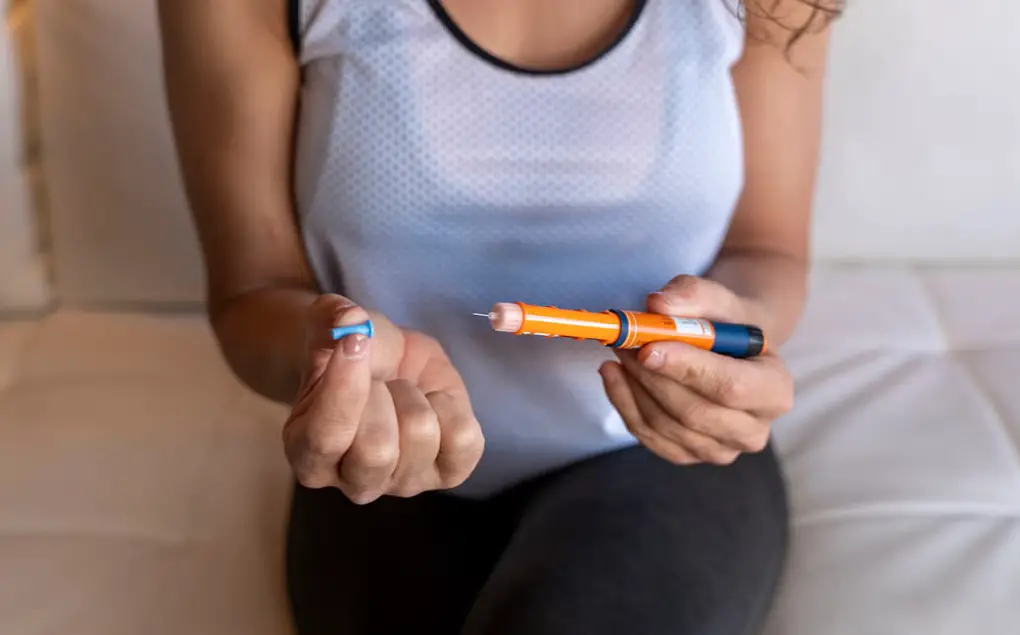Insulin is one of the most vital hormones in the human body, carefully regulating how glucose enters cells and how energy is stored. For individuals with diabetes, insulin therapy can be life-saving, restoring balance where the body can no longer produce or use insulin effectively. However, a common question arises: what if someone who does not have diabetes takes insulin? At first glance, it may sound harmless, since insulin is a naturally occurring hormone, but the truth is far more complex and potentially dangerous.
When a non-diabetic individual introduces external insulin into their body, they are essentially forcing their blood sugar to drop in an unnatural and uncontrolled manner. This can create a chain reaction of physiological disturbances, some temporary but others potentially fatal if not addressed quickly. Understanding the impact of this scenario is crucial not only for general health awareness but also for preventing misuse of insulin outside of prescribed medical treatment.
This article will explore in detail what happens inside the body when a non-diabetic person takes insulin, why these effects can be harmful, the short-term and long-term consequences, and how the medical community addresses such situations. By the end, you will have a complete picture of why insulin should never be used without medical necessity and supervision.
The Role of Insulin in a Healthy Body

How Insulin Works Under Normal Conditions
In a healthy person, the pancreas secretes insulin in direct response to rising blood sugar levels, particularly after meals. The hormone acts like a key, unlocking the body’s cells so glucose can enter and be used for energy. This process ensures that blood sugar stays within a safe range, typically between 70 and 110 mg/dL in a fasting state.
When glucose is absorbed into muscle and fat cells, insulin simultaneously signals the liver to reduce glucose production, preventing excess sugar from flooding the bloodstream. This delicate feedback loop keeps the system balanced without conscious effort from the individual.
Because of this tight regulation, healthy individuals already produce the exact amount of insulin required for their bodies. Introducing additional insulin from an external source disrupts this balance in a dramatic way, forcing blood sugar downward even if it was already in the normal range.
Why Insulin is Not Needed in Non Diabetics
Unlike diabetics, who either cannot produce insulin or cannot use it effectively, non-diabetics have a fully functioning pancreas. Their insulin secretion adjusts automatically based on food intake and activity levels. The body’s natural system is self-sufficient and does not require outside interference.
Therefore, giving insulin to a person who does not need it does not enhance health or metabolism. Instead, it overwhelms the natural regulatory system, pulling blood sugar below safe levels and setting the stage for hypoglycemia. This is where the dangers begin.
Immediate Effects of Insulin on a Non Diabetic
The Drop in Blood Sugar Levels
The most immediate and predictable effect of taking insulin without having diabetes is a sudden decrease in blood glucose. Because insulin drives sugar out of the bloodstream and into cells, an unnecessary injection can reduce blood sugar far below normal levels. This condition, known as hypoglycemia, can occur within minutes to hours depending on the type and dose of insulin.
Symptoms of hypoglycemia may start mildly with shakiness, sweating, dizziness, and hunger. As glucose continues to fall, more severe signs emerge, such as confusion, slurred speech, blurred vision, and difficulty concentrating. If left untreated, blood sugar can drop to a point where the brain is deprived of energy, leading to seizures, loss of consciousness, or even death.
The Body’s Stress Response
When blood sugar plunges too low, the body triggers a stress response to counteract the danger. Hormones like adrenaline and cortisol are released to stimulate the liver to produce glucose and to raise blood pressure and heart rate. While this response is protective, it is not always strong enough to overcome the artificially high insulin levels, particularly if a large dose was taken.
This hormonal surge can also make the person feel anxious, restless, or experience a rapid heartbeat, adding to the sense of distress. In some cases, the stress response itself can complicate existing health conditions, such as heart disease or hypertension, making the situation more dangerous.
Short-Term Consequences of Insulin Misuse
Hypoglycemia and Its Dangers
The central short-term consequence of insulin intake in a non-diabetic is hypoglycemia. At mild levels, it may cause discomfort and impair daily functioning. At severe levels, it can quickly become life-threatening. The brain is particularly vulnerable because it relies heavily on glucose for fuel. Unlike muscles, which can burn fat for energy, the brain needs a continuous supply of glucose to function properly.
A dangerously low blood sugar level can cause disorientation and inability to make rational decisions, which is why hypoglycemia is sometimes mistaken for intoxication. In fact, medical emergencies have been reported where individuals injected with insulin were found unconscious and required immediate hospital care to restore glucose balance.
Risk of Accidents and Injuries
Low blood sugar impairs coordination, reflexes, and mental clarity. For a non-diabetic person who takes insulin, this means everyday tasks like driving, operating machinery, or even walking can suddenly become risky. Many accidents have been linked to hypoglycemic episodes because the person affected may not recognize the symptoms until it is too late.
Long-Term Consequences of Unnecessary Insulin Use
Repeated Hypoglycemia and Brain Health
If a non-diabetic repeatedly takes insulin, the risk of chronic hypoglycemia becomes significant. While a single episode can be dangerous, frequent episodes can have cumulative effects on the brain. Studies suggest that repeated glucose deprivation may contribute to long-term neurological issues, including memory problems and difficulty concentrating.
In extreme cases, persistent hypoglycemia has been associated with permanent brain damage. This is why insulin misuse is treated seriously in both clinical and forensic medicine.
Impact on Hormonal Balance and Metabolism
Beyond the immediate danger, introducing unnecessary insulin interferes with the body’s finely tuned hormonal system. Over time, the pancreas may adjust its natural secretion patterns, leading to further imbalance. Additionally, weight gain is a common side effect of excessive insulin because the hormone promotes fat storage. For a healthy individual, this can increase the risk of obesity and metabolic complications.
Psychological and Social Implications
Insulin Misuse in Non Diabetics
Although rare, some individuals misuse insulin intentionally, either for performance enhancement, weight manipulation, or in cases of self-harm. Athletes, for example, have experimented with insulin to try to improve muscle growth, despite the serious risks involved. In other situations, insulin has been misused in psychiatric conditions where individuals intentionally harm themselves.
Each of these scenarios highlights the need for awareness, education, and preventive measures. Insulin is a powerful hormone and not a substance to be experimented with outside medical supervision.
Emotional Effects of Hypoglycemia
Even when accidental, the experience of sudden hypoglycemia can leave lasting psychological effects. People may feel anxious about future health episodes, fearful of fainting in public, or embarrassed by the confusion caused during an episode. These emotional impacts should not be underestimated, as they can reduce overall quality of life.
How Doctors Respond to Insulin Intake in Non Diabetics
Emergency Medical Treatment
When a non-diabetic is brought to medical attention after taking insulin, the immediate priority is restoring blood glucose. This is typically achieved through intravenous glucose infusion or administration of glucagon, a hormone that raises blood sugar. Continuous monitoring is required because the effects of injected insulin may last for hours, and blood sugar can fall again after initial treatment.
Hospitals also evaluate the type and dose of insulin taken, since rapid-acting and long-acting insulins behave differently. Depending on the severity, patients may be monitored overnight or longer to ensure stability.
Long-Term Care and Counseling
After the acute danger passes, doctors usually recommend follow-up care to address the underlying cause of the insulin intake. If accidental, education about the dangers is provided. If intentional, psychiatric evaluation may be suggested to rule out depression or other mental health concerns. In all cases, prevention of future incidents becomes the focus.
Why Insulin Should Never Be Taken Without Medical Need
The Myth of Insulin as a Health Booster
Some misconceptions exist that insulin can improve physical performance, enhance weight control, or accelerate recovery from workouts. These beliefs are unfounded and dangerous. For a non-diabetic, insulin offers no benefit whatsoever. Instead, it introduces significant risks without any medical gain.
The Importance of Medical Supervision
Even for diabetics who require insulin, dosing must be carefully calculated and monitored. Blood sugar levels fluctuate depending on diet, exercise, stress, and illness. If a person without diabetes uses insulin without this monitoring, they are essentially gambling with their health.
Conclusion
If a non diabetic takes insulin, what happens to the body is not beneficial but potentially catastrophic. The hormone rapidly lowers blood sugar, leading to hypoglycemia, which can cause confusion, seizures, loss of consciousness, or death if untreated. While the body has natural defenses against low blood sugar, they are not always sufficient to counteract artificially high levels of insulin.
In the short term, the risks include accidents, cognitive impairment, and medical emergencies. In the long term, repeated episodes may damage the brain, disrupt hormonal balance, and contribute to weight gain and metabolic issues. Beyond the physical dangers, insulin misuse can also have psychological and social consequences.
Insulin is a life-saving therapy for those who need it, but for non-diabetics, it is a substance that should never be taken. Understanding this distinction is crucial for health awareness, safety, and prevention. The body’s natural regulation of insulin is perfectly designed to meet its needs. Interfering with this balance without medical necessity only brings harm, not benefit.
FAQs About If a Non Diabetic Takes Insulin
What happens if a healthy person takes insulin?
If a healthy person takes insulin, their blood sugar can drop rapidly, leading to hypoglycemia. This can cause dizziness, confusion, seizures, and in severe cases, coma or death.
Can taking insulin without diabetes be fatal?
Yes, it can be fatal. Insulin misuse in non-diabetics may trigger dangerously low blood sugar levels that the body cannot compensate for, making it a life-threatening emergency if untreated.
How quickly do symptoms appear after taking insulin?
Symptoms may appear within minutes to a few hours depending on the insulin type and dosage. Early signs include sweating, shakiness, blurred vision, and trouble concentrating.
Does the body become dependent on insulin if a non diabetic takes it?
No, the body does not become dependent, but repeated misuse can disrupt normal hormonal balance and increase risks of long-term brain or metabolic issues.
Why is insulin dangerous for non diabetics but life-saving for diabetics?
For diabetics, insulin replaces what the body cannot produce or use effectively. For non-diabetics, their pancreas already produces the right amount, so extra insulin forces glucose too low, creating harm instead of help.
Disclaimer: This article is for informational and educational purposes only. It is not intended to provide medical advice, diagnosis, or treatment. Never take insulin or any medication without a doctor’s prescription. If you experience symptoms related to low blood sugar or suspect insulin misuse, seek immediate medical attention. Always consult a qualified healthcare professional for guidance regarding your health.



